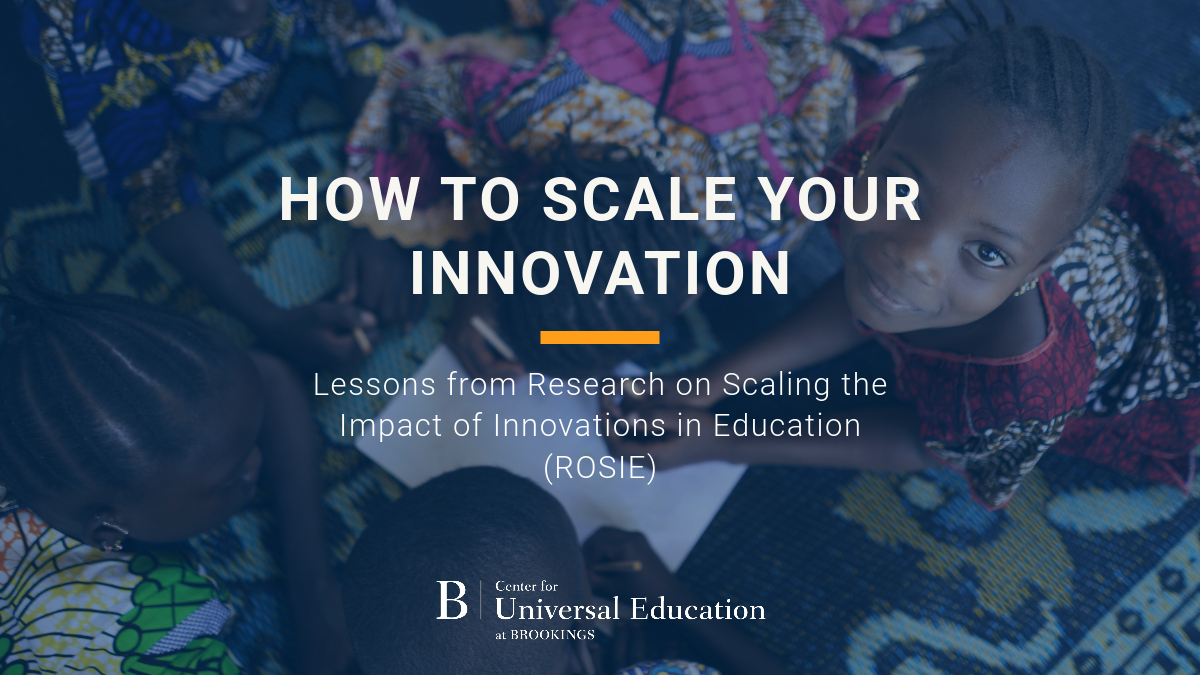
By Nica Basuel and Tracy Olson
The Center for Universal Education (CUE) at the Brookings Institution recently hosted a virtual event, “How to Scale Your Innovations: Lessons from ROSIE,” marking a significant milestone in the ongoing collaboration between CUE and the Global Partnership for Education Knowledge and Innovation Exchange (KIX).
The event celebrated the collective efforts of ROSIE-KIX teams, offering a reflective moment on almost four years of ROSIE work. As a cross-national and design-based research endeavor, ROSIE focuses on studying, supporting, illuminating, and localizing the scaling process of educational innovations globally.
For this event, global leaders, practitioners, and educators discussed scaling impact in education systems. With Brookings Senior Fellows Brad Olsen and Jenny Perlman Robinson moderating, speakers including Gustavo Arcia, Brahima S. Coulibaly, Luis Crouch, Leonardo Garnier, Ian Macpherson, Tricia Wind, and Rebecca Winthrop shared their perspectives on challenges and opportunities in scaling the impact of educational innovations. Drawing on the work of ROSIE—presented during the event as videos featuring examples from KIX applied research teams—the panelists engaged in two conversations:
Panel 1: Effective Strategies for Scaling in Low- and Middle-Income Countries
In this first panel, key takeaways included the need to include government officials in the scaling process right from the beginning, the value of focusing on a problem already identified first and then working outward from that priority toward a solution, and the importance of building a shared narrative in which all stakeholders see themselves as partners in the long scaling journey.
Panel 2: Data and Research in National-Level Education Decision-Making
The second panel underscored the significance of scaling teams using administrative data sets for informed policy formulation. It was discussed how collaboration will almost always enhance data quality and shared understanding of the educational landscape. Local decision-makers were identified as crucial components in government policy making because their awareness of local needs and their commitment to community betterment play a pivotal role in implementing educational innovations. The conversation distinguished between using data and conducting research—viewing both as important but in different ways. And finally, the panel
encouraged strengthening the coordination between global efforts and country governments to co-construct research for impactful data-driven decision-making.
For those unable to attend the live event, recordings with simultaneous interpretation in English, French, and Spanish are available here.
Our sincere gratitude goes out to all participants, speakers, and contributors for their invaluable insights. We invite you to share your thoughts on effective scaling in education with us, and stay connected for updates on future events, initiatives, and research findings.
